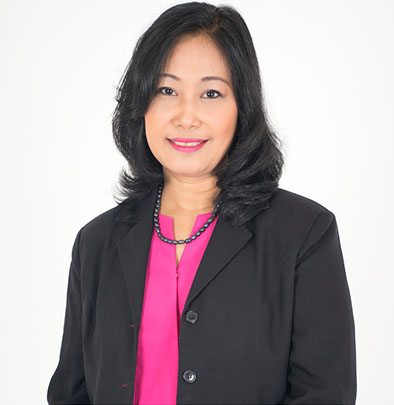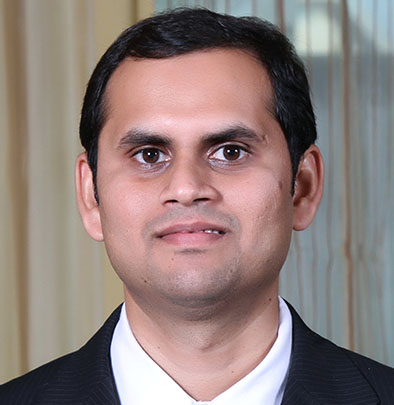Draft branchless banking regulations in Indonesia – A review
by Ghiyazuddin Mohammad and Grace Retnowati
Sep 18, 2014
7 min
This note provides an analysis of the draft regulations of branchless banking based on MicroSave’s experience of working in Indonesia and other geographies.
The Government of Indonesia has been proactive in its efforts to extend formal financial access to the unbanked and under-banked sections of the society. The release of draft regulations on branchless financial services for financial inclusion by Otoritas Jasa Keuangan (OJK – the financial services authority that regulates and supervises financial services activities in banking, capital markets, and non-bank financial industries) is a positive step in this direction. It is laudable that OJK has provided much needed regulatory clarity in such a short time. This note provides an analysis of the draft regulations based on our experience of working in Indonesia and other geographies.
Some of the positive and progressive clauses of the regulation are highlighted below.
- Stakeholder Feedback: OJK’s initiative to seek feedback from industry experts and stakeholders is commendable. Media reports also suggest that OJK plans to have discussions with industry players to seek their suggestions. These consultations provide much needed industry perspective, making it a collaborative effort to devise enabling regulations.
- Simpler Customer Due Diligence (CDD) Requirements: A client with any photo identity card issued by the government or a reference letter from a local community leader can open a basic savings account. This is the most progressive clause of the regulation. Simpler CDD requirements help the financially excluded sections of the society integrate into the formal financial system. For example in Pakistan (with simpler CDD requirements for low-value accounts), the number of branchless banking accounts grew 63% in a year, from 1.8 million in September 2012 to 2.96 million in September 2013. Further, this clause is in line with Financial Action Task Force’s guidance on AML/CFT measures for Financial Inclusion ensuring that the risks associated with simpler CDD requirements are not compromised.
- Diverse Product Suite: The regulations permit service providers to offer a wide array of products such as savings, micro-loans, micro-insurance, and transfers thus providing a one-stop shop for all clients’ financial needs. It is a well-documented fact that poor lead active financial lives because they are poor, not despite it. They create “portfolios” using various financial products through informal and formal institutions to address their immediate and longer-term needs. Research conducted by MicroSave in Indonesia and elsewhere(for example India, Bangladesh, Sri Lanka, and Nepal) shows that there is high demand for diverse financial products/services among the poor and the unbanked. A diverse product suite also drives up transaction volumes increasing business viability for service providers and agents.
- Varied Service Providers: Banks, financial institutions and insurance companies (life and asset) are eligible to become branchless financial service providers. This enables smaller banks and financial institutions (including microfinance, rural banks, and venture finance institutions) with limited capital and geographical presence to offer financial services through low-cost technology-enabled channels. Further, service providers are allowed to appoint individual agents (airtime sellers, mom and pop stores, etc.) and business entities (with legal status) as agents. This is a marked shift from existing electronic money regulations, issued by Bank Indonesia, which favor big Buku IV banks(banks with a minimum core capital of IDR 30 trillion i.e., approximately US$2.6 billion) by allowing them to appoint individual agents. Airtime sellers, small retailers, and mom and stores have played a significant role in facilitating low value/high volume financial transactions in other geographies. In Indonesia, both the organized and unorganized retail sectors have a significant presence. 75% to 80% of retail sales are through the unorganized sector, and reports also suggest that there are 2.56 million retailers in Indonesia. Clearly, these outlets can play a major role in reaching out to the unbanked and under-banked.
However, we would like to suggest some improvements to make the regulations more progressive and further foster the development of branchless financial services in Indonesia.
- Customer Charges: Regulations suggest customers can be charged for withdrawals and transfers only after four transactions in a month. All other transactions are free. The assumption behind these restrictions seems to be that customers may not willing or able to pay for the services. However, research done by MicroSave with Cocoa farmers in South Sulawesi indicates that customers are willing to pay up to IDR 5000 for withdrawals and IDR 2500 for bill payment transactions. Further findings from cost and willingness to pay research conducted in India suggest that an overwhelming 80% of the respondents are willing to pay for the services if they are closer, quick and easy (hassle free). Restrictions on charges are likely to render the business unviable both for service providers and agents. In a nationwide study conducted by MicroSave (findings of the research were presented in an exclusive workshop for OJK), respondents mentioned that commissions/incentives remain the biggest motivation to become an agent. Agents carry out key activities – customer enrolment, liquidity management, transaction facilitation etc. – and additional revenue in the form of incentives/commissions keep them motivated. Charging customers for enrolment, cash-outs, payments, and transfers make the digital financial services (DFS) viable and sustainable for all the stakeholders.
- Location restrictions: Regulations suggest that service providers need to have branches in the eastern part of Indonesia in order to be eligible for branchless financial services. Further regulations restrict agents from operating in provincial, regency or municipality capitals. Removing these clauses would help service providers realize the full potential of DFS deployments. Studies in all countries with successful DFS deployments show that agents are present both in urban and rural areas. For example, only 43% of M-PESA agents in Tanzania are located in rural areas and the rest in urban areas. Further GSMA’s State of the Industry 2013 (Mobile Financial Service for the Unbanked) study shows that 71% of the agents worldwide are in urban areas. Contrary to the common perception, there is very significant and important demand for such services even in urban areas. Proximity, convenient timing (early morning or late evening), less documentation and no queues are the reasons why customers prefer to conduct transactions with agents in urban areas. Research conducted by MicroSave in Indonesia suggests that 57% of the respondents like agents’ convenient timing as it allows them to transact before/after their work. Furthermore, those who have migrated to the cities for work need urban agents to remit money home into the rural areas. So removing this facility will weaken the value proposition for clients and remove a key anchor product for DFS providers.
- Withdrawal restrictions: A customer can withdraw only IDR 5 million (US$430) a month, even though he/she is allowed to maintain up to IDR 20 million (US$1,720) in the account. While the intentions seem noble (risk mitigation, AML/CFT measures and liquidity management), the consequences can be negative. Customers will want uninhibited access to their own funds at any point in time. Not providing this access will spoil customer experience leading to limited uptake. Personally, as customers, we would not be willing to save with a bank which restricts from withdrawing our own funds! The risks/frauds related to withdrawals at agent outlet are already taken care of as regulations mandate two-factor authentication. Further, OJK can mandate banks to note down customer identification number (KTP/SIM etc) for every agent initiated a transaction. This is already being practiced in Kenya and has been helpful in controlling frauds.
- Agent Exclusivity: Regulations mandate agents to partner with only one service provider. Agents should be given the option to partner with multiple service providers depending on the business potential he/she foresees in the area. Many of the regulators such as in Pakistan, Rwanda, Kenya etc. mandate non-exclusivity of agents (i.e. agents can partner with more than one bank/service provider). True financial inclusion can be achieved through non-exclusive agents, especially in rural areas where access to formal financial services is limited. Setting up exclusive agent networks in rural areas will also be more costly and unviable. In addition, we have observed that it is difficult to find qualified agents in rural areas given the limitations in term of capital, education level, ability to use technology, etc. Moreover, from the customer perspective, non-exclusive agents will provide a shared platform for a better customer uptake. Customers can choose the best product/services for them when they have a choice between various service providers. Agents can and indeed should act as financial supermarkets offering multiple products/ services through various service providers.
- Agent Association with Bank: The proposed regulations suggest that only existing customers associated with the bank/service provider for at least two years are eligible to become agents. It will be good if this requirement is relaxed or done away with. It can be a “good to have” criteria rather than a “disqualifying” criteria for recruiting agents. Otherwise, it will prevent many deserving, capable and willing candidates from becoming agents. Further OJK may direct banks/FIs to have their own agent selection criteria to ensure proper due diligence in the selection of agents. A case in point is branchless banking regulations in Pakistan where the central bank mandates the service providers to have new agent on-boarding procedure (NATP) as part of its Agent Due Diligence policy.
In conclusion, OJK has taken a giant leap towards achieving the objective of financial inclusion in Indonesia. However, to create a win-win situation for all the stakeholders, more importantly, customers, OJK may consider suggestions provided by MicroSave and other industry experts. For the service providers – the ball is in your court now! It is your turn to come up with viable, innovative and customer-centric branchless financial services business models that meet the needs of unbanked and under-banked Indonesians.
Written by

 by
by  Sep 18, 2014
Sep 18, 2014 7 min
7 min
Leave comments